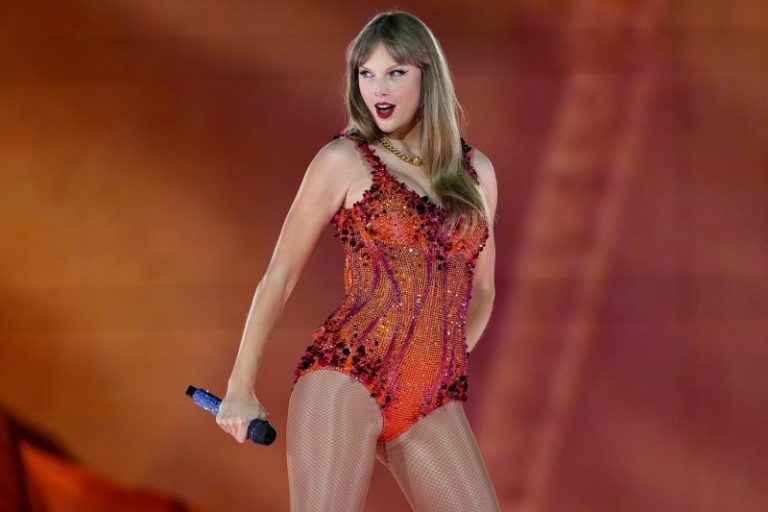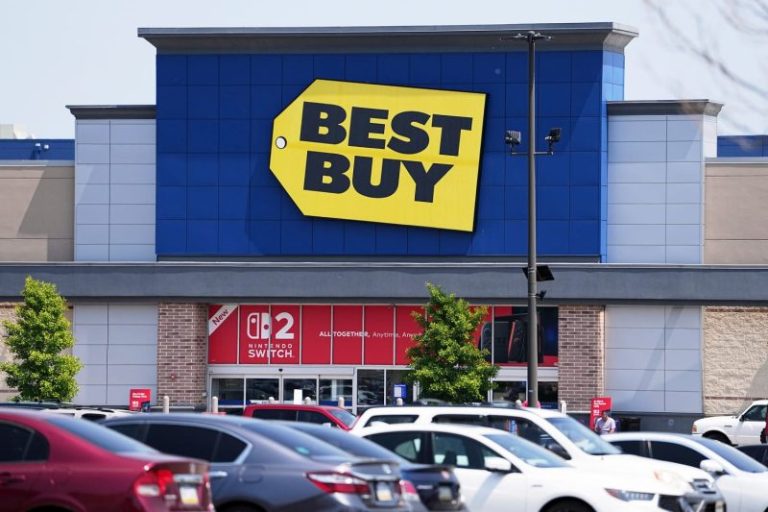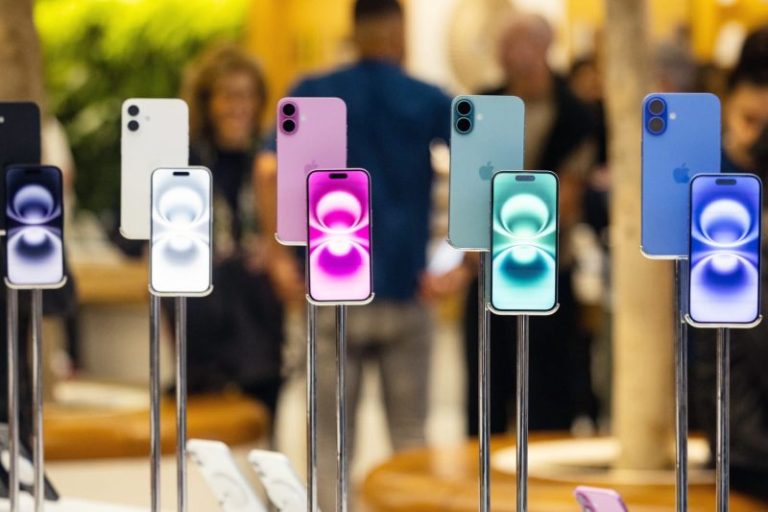A ticket-reselling operation used a network of fake accounts to bypass Ticketmaster’s security protocols to grab hundreds of thousands of tickets to hugely popular tours for artists like Taylor Swift and Bruce Springsteen and then re-sold them for millions, federal regulators said Monday.
The Federal Trade Commission alleges the operation used illicit software that masked IP addresses, as well as repurposed credit cards and SIM phone cards, as part of the scheme. It was run through various guises, like TotalTickets.com, TotallyTix and Front Rose Tix, but was run by three key individuals, the agency said.
In total, the group is accused of buying 321,286 tickets to 3,261 live performances from June 2022 to December 2023, in bunches of 15 or more tickets to each event at a total cost of approximately $46.7 million and then reselling them for $52.4 million, netting approximately $5.7 million.
That includes $1.2 million from reselling tickets in 2023 for Taylor Swift’s record-breaking “The Eras Tour.” In one instance, the suspects used 49 different accounts to purchase 273 tickets for Swift’s March 2023 tour stop in Las Vegas, vastly exceeding Ticketmaster’s six-ticket limit, which they then sold for $120,000, the FTC alleges.
Another part of the alleged scheme involved using friends, family and paid strangers to open Ticketmaster accounts. The FTC says the defendants at one point printed up flyers in places like Baltimore claiming that participants could “make money doing verified van sign ups” in just “3 easy steps,” earning $5 for the account creation and $5 to $20 each time they received a Verified Fan presale code.
Ticketmaster came in for heavy criticism after fans complained of faulty technology and eye-watering prices for 2022 sales for Taylor Swift and Bruce Springsteen’s tours. The Verified Fan pre-sale for Swift’s tour crashed its site, which it blamed on “bot attacks” and bot fans who didn’t have invite codes. It was subsequently forced to postpone the sale date for the general public seeking tickets to Swift’s tour “due to demands on ticketing systems and insufficient remaining ticket inventory.”
In response, Swift alluded to broken “trust” with Ticketmaster, though she didn’t name it directly.
“It’s really difficult for me to trust an outside entity with these relationships and loyalties, and excruciating for me to just watch mistakes happen with no recourse,” she wrote in an Instagram message in 2022, adding: “I’m not going to make excuses for anyone because we asked them multiple times if they could handle this kind of demand and we were assured they could.”
Springsteen said in a statement at the time that “ticket buying has gotten very confusing, not just for the fans, but for the artists also” but that most of his tickets are “totally affordable.”
In March, President Donald Trump signed an executive order focused on curbing exploitative ticket reselling practices that raise costs for fans.
On Monday, FTC Chairman Andrew N. Ferguson said Trump’s order made clear ‘that unscrupulous middlemen who harm fans and jack up prices through anticompetitive methods will hear from us.”
“Today’s action puts brokers on notice that the Trump-Vance FTC will police operations that unlawfully circumvent ticket sellers’ purchase limits, ensuring that consumers have an opportunity to buy tickets at fair prices,” he said in a statement.
Ticketmaster itself has remained under federal scrutiny for violating a prior agreement to curb what regulators said was anti-competitive behavior. In 2024, the Justice Department and FTC under President Joe Biden opened a lawsuit against Ticketmaster’s parent company, LiveNation, that accused it of monopolizing the live events industry.
It was not immediately clear whether that suit is still active. In July, the parent company of the alleged operation charged Monday by the FTC, Key Investment Group, sued the agency to block its pending investigation into its sales practices, saying that ticket purchases on its site did not use automated software, or bots, and did not violate the 2016 Better Online Ticket Sales (BOTS) Act.
Representatives for the FTC and Justice Department did not respond to a request for comment. Ticketmaster is not accused of wrongdoing in the latest suit. It did not respond to a request for comment.
Strangely, in the latest complaint, the FTC includes a slide from an internal Ticketmaster presentation from 2018 that suggests the company was weighing the economic impact of imposing stricter purchasing caps that would curb bots but potentially hurt its finances. On a page labeled “evaluating potential actions” a data table is shown under the heading “serious negative economic impact if we move to 8 ticket limit across the board.”
It also includes an email from one of the defendants in which he “owns up” to having exceeded the ticket-purchase limit for a May 2024 Bad Bunny show in Miami and offers to have the orders canceled, to which a Ticketmaster rep simply responds that “as long as the purchases were made using different accounts and cards, it’s within the guidelines.”
Efforts to reach the three defendants — Taylor Kurth, Elan Rozmaryn and Yair Rozmaryn — named in the suit announced Monday were unsuccessful. In 2018, Kurth signed a deal, or consent decree, with regulators in the state of Washington that committed him to not use software designed to circumvent companies’ security policies.
The FTC is seeking unspecified damages and civil penalties against the defendants.
CORRECTION (Aug. 19, 2025, 11:41 a.m. ET): An earlier version of this article incorrectly named a party suing the FTC and which investigation it was suing over. Key Investment Group, the parent of the alleged operation cited in the suit filed Monday by the FTC, sued the agency in July to halt an investigation into its practices. Ticketmaster and its parent, Live Nation, are not directly involved in that investigation or Key’s suit against the agency.



